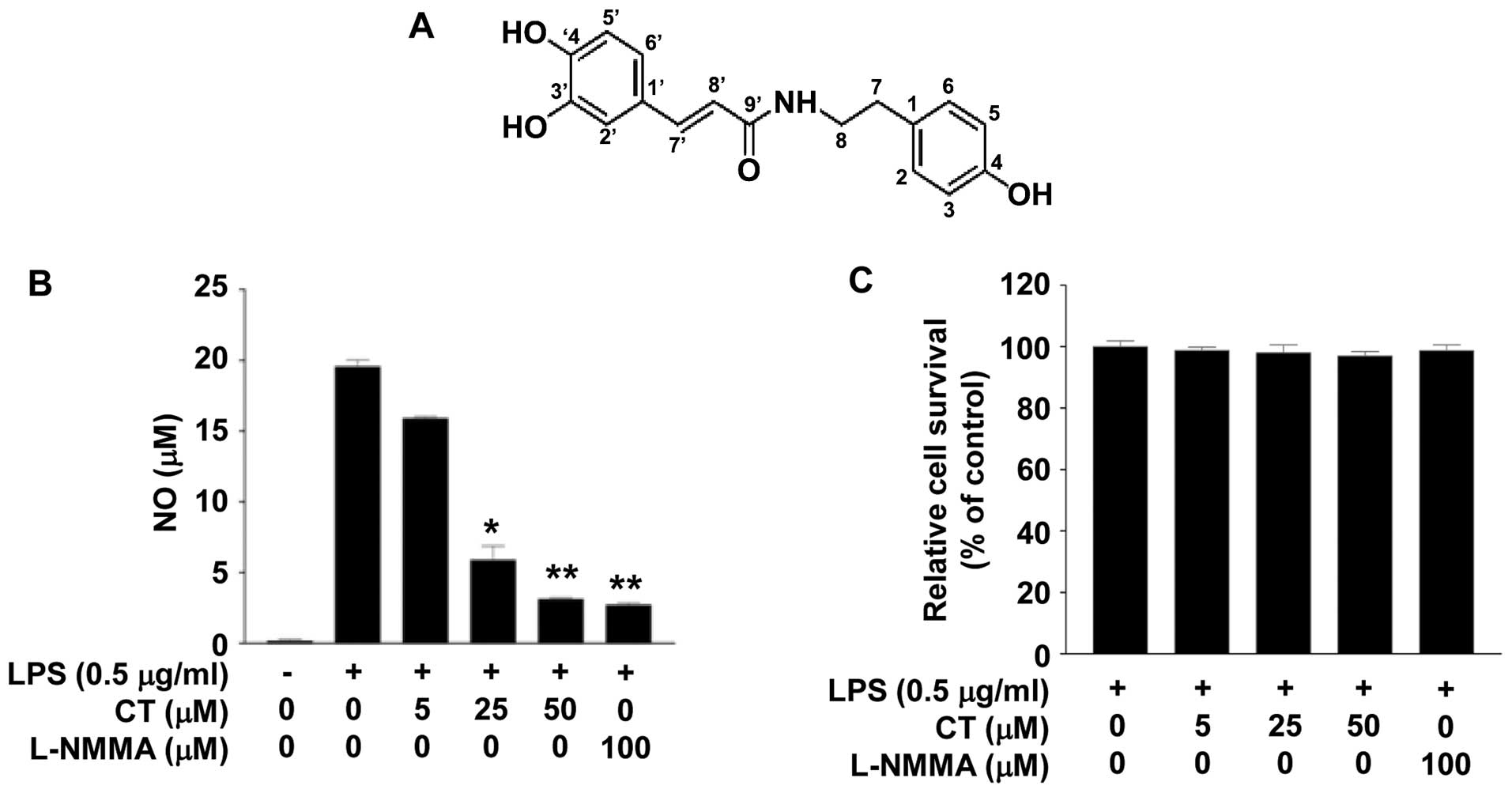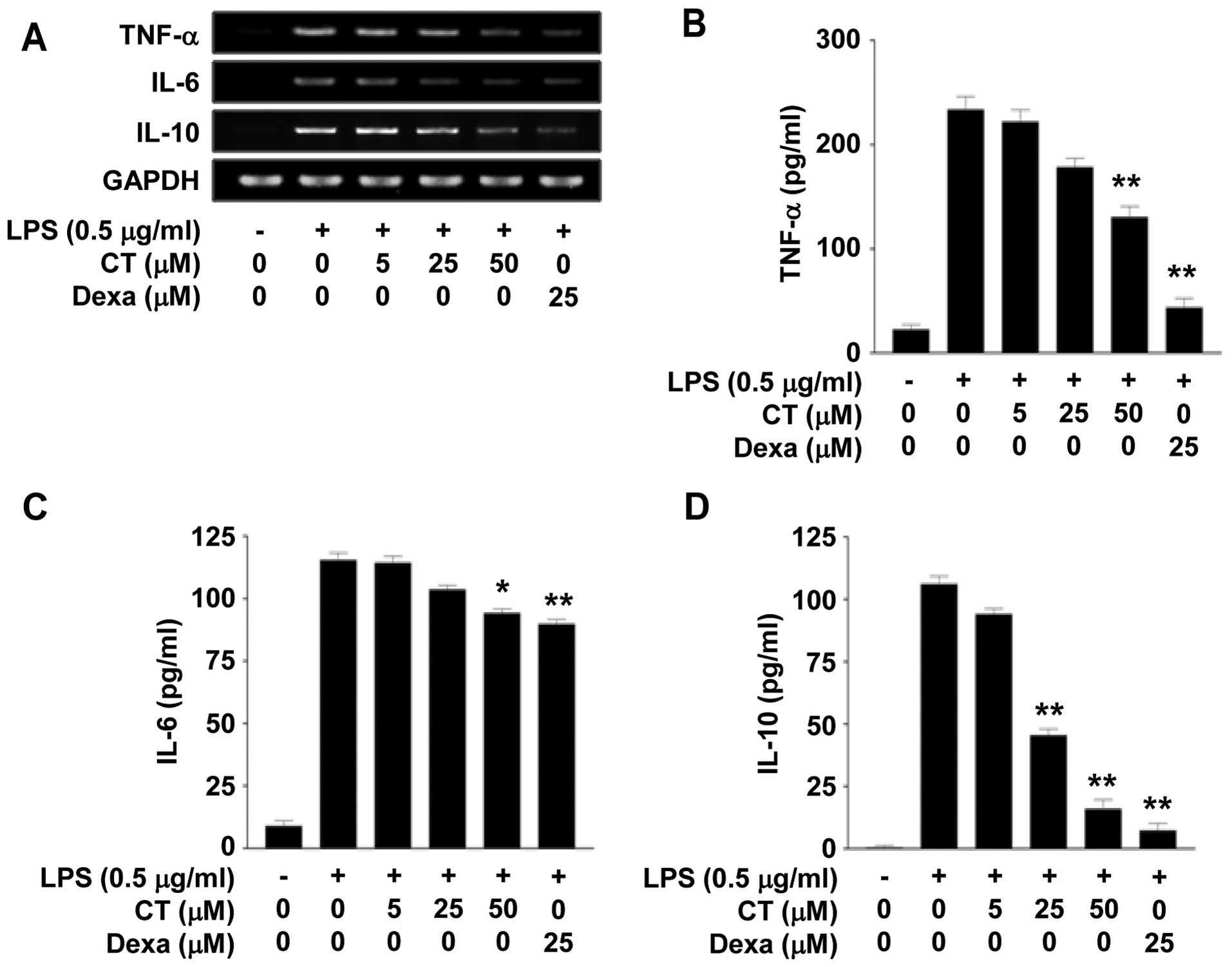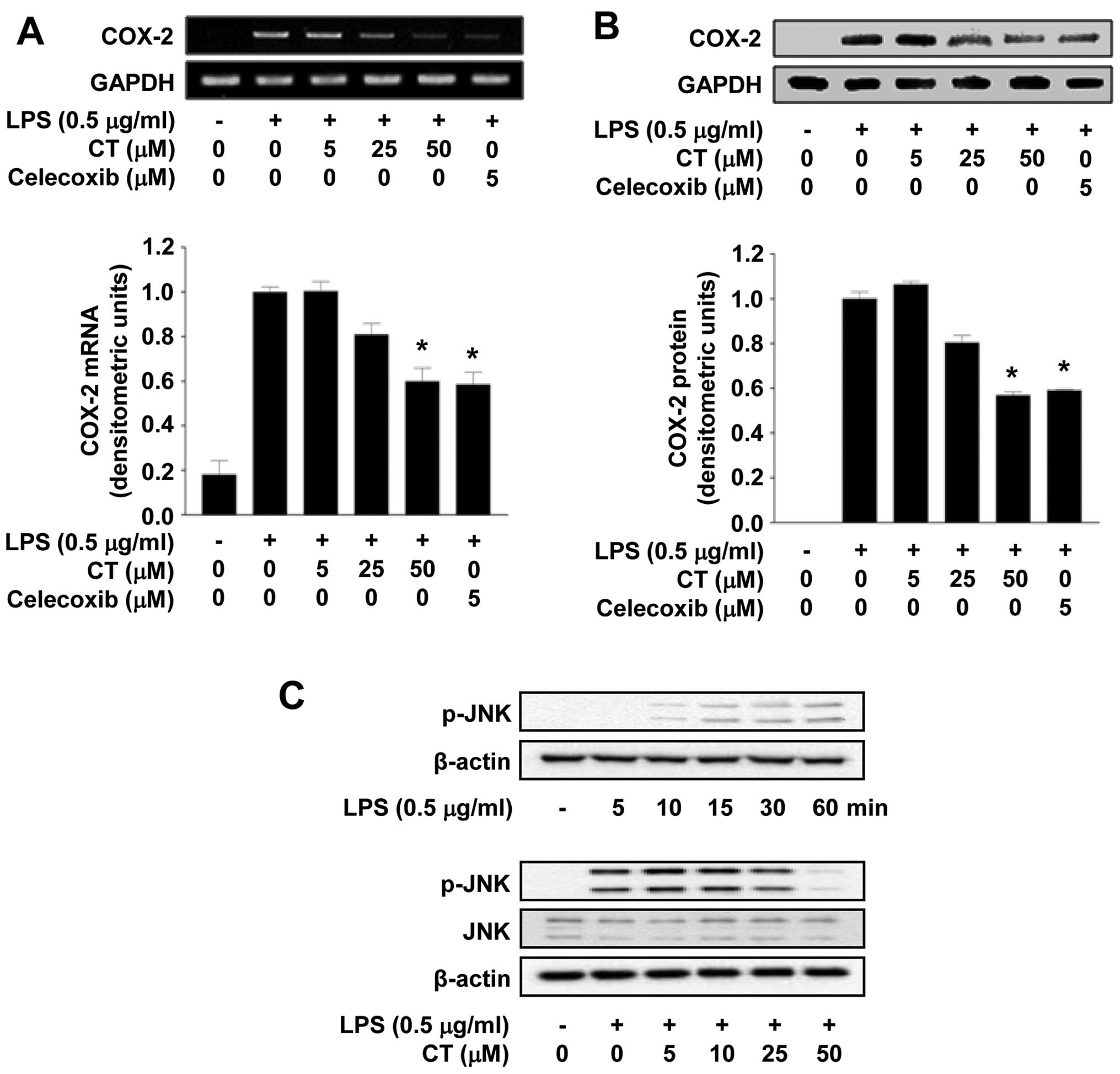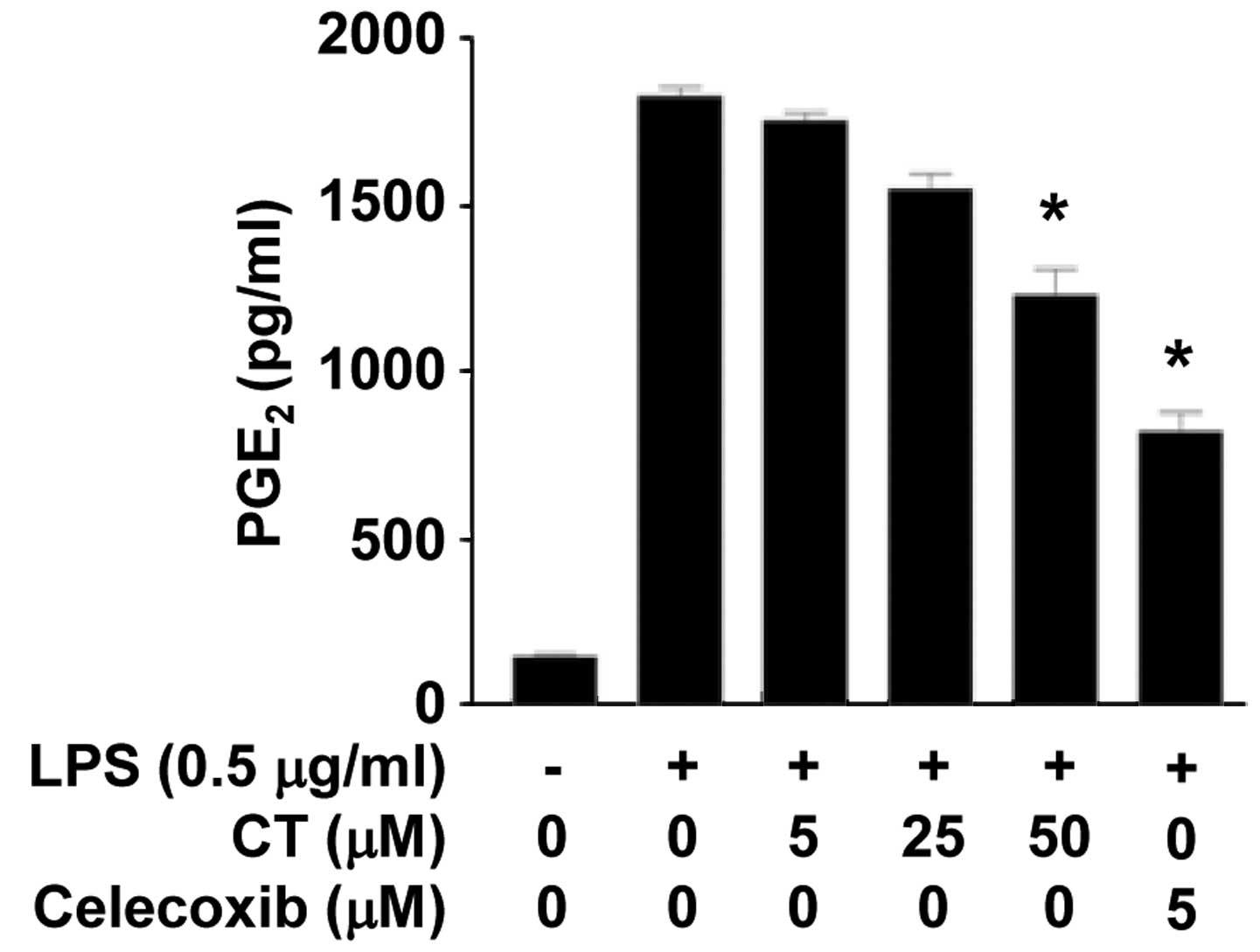|
1
|
Phillips OA, Mathew KT and Oriowo MA:
Antihypertensive and vasodilator effects of methanolic and aqueous
extracts of Tribulus terrestris in rats. J Ethnopharmacol.
104:351–355. 2006. View Article : Google Scholar
|
|
2
|
Adimoelja A: Phytochemicals and the
breakthrough of traditional herbs in the management of sexual
dysfunctions. Int J Androl. 23(Suppl 2): 82–84. 2000. View Article : Google Scholar : PubMed/NCBI
|
|
3
|
Zhang JD, Cao YB, Xu Z, Sun HH, An MM, Yan
L, Chen HS, Gao PH, Wang Y, Jia XM and Jiang YY: In vitro and in
vivo antifungal activities of the eight steroid saponins from
Tribulus terrestris L. with potent activity against
fluconazole-resistant fungal pathogens. Biol Pharm Bull.
28:2211–2215. 2005. View Article : Google Scholar : PubMed/NCBI
|
|
4
|
Chu S, Qu W, Pang X, Sun B and Huang X:
Effect of saponin from Tribulus terrestris on hyperlipidemia. Zhong
Yao Cai. 26:341–344. 2003.In Chinese. PubMed/NCBI
|
|
5
|
Amin A, Lotfy M, Shafiullah M and Adeghate
E: The protective effect of Tribulus terrestris in diabetes. Ann NY
Acad Sci. 1084:391–401. 2006. View Article : Google Scholar : PubMed/NCBI
|
|
6
|
Jiangsu New Medical College: Dictionary of
the Chinese Herbal Medicine. Shanghai People's Publishing House;
Shanghai: pp. 12741977
|
|
7
|
Lv AL, Zhang N, Sun MG, Huang YF, Sun Y,
Ma HY, Hua HM and Pei YH: One new cinnamic imide dervative from the
fruits of Tribulus terrestris. Nat Prod Res. 22:1013–1016. 2008.
View Article : Google Scholar : PubMed/NCBI
|
|
8
|
Al-Taweel AM, Perveen S, El-Shafae AM,
Fawzy GA, Malik A, Afza N, Iqbal L and Latif M: Bioactive phenolic
amides from Celtis africana. Molecules. 17:2675–2682. 2012.
View Article : Google Scholar : PubMed/NCBI
|
|
9
|
Willeaume V, Kruys V, Mijatovic T and Huez
G: Tumor necrosis factor-alpha production induced by viruses and by
lipopolysac-charides in macrophages: similarities and differences.
J Inflamm. 46:1–12. 1996.
|
|
10
|
Xie QW, Whisnant R and Nathan C: Promoter
of the mouse gene encoding calcium-independent nitric oxide
synthase confers inducibility by interferon γ and bacterial
lipopolysaccharide. J Exp Med. 177:1779–1784. 1993. View Article : Google Scholar : PubMed/NCBI
|
|
11
|
Vane JR, Mitchell JA, Appleton I,
Tomlinson A, Bishop-Bailey D, Croxtall J and Willoughby DA:
Inducible isoforms of cyclo-oxygenase and nitric-oxide synthase in
inflammation. Proc Natl Acad Sci USA. 91:2046–2050. 1994.
View Article : Google Scholar
|
|
12
|
Nathan C and Xie QW: Nitric oxide
synthases: roles, tolls, and controls. Cell. 78:915–918. 1994.
View Article : Google Scholar : PubMed/NCBI
|
|
13
|
Yoon WJ, Ham YM, Yoo BS, Moon JY, Koh J
and Hyun CG: Oenothera Iaciniata inhibits lipopolysaccharide
induced production of nitric oxide, prostaglandin E2, and
proinflam-matory cytokines in RAW264.7 macrophages. J Biosci
Bioeng. 107:429–438. 2009. View Article : Google Scholar : PubMed/NCBI
|
|
14
|
Reddy DB and Reddanna P: Chebulagic acid
(CA) attenuates LPS-induced inflammation by suppressing NF-kappaB
and MAPK activation in RAW 264.7 macrophages. Biochem Biophys Res
Commun. 381:112–117. 2009. View Article : Google Scholar : PubMed/NCBI
|
|
15
|
Murakami A and Ohigashi H: Targeting NOX,
INOS and COX-2 in inflammatory cells: Chemoprevention using food
phytochemicals. Int J Cancer. 121:2357–2363. 2007. View Article : Google Scholar : PubMed/NCBI
|
|
16
|
Hinz B, Brune K and Pahl A: Prostaglandin
E(2) upregulates cyclooxygenase-2 expression in
lipopolysaccharide-stimulated RAW 264.7 macrophages. Biochem
Biophys Res Commun. 272:744–748. 2000. View Article : Google Scholar : PubMed/NCBI
|
|
17
|
Crofford LJ, Lipsky PE, Brooks P, Abramson
SB, Simon LS and van de Putte LB: Basic biology and clinical
application of specific cyclooxygenase-2 inhibitors. Arthritis
Rheum. 43:4–13. 2000. View Article : Google Scholar : PubMed/NCBI
|
|
18
|
Chen T, He J, Zhang J, Li X, Zhang H, Hao
J and Li L: The isolation and identification of two compounds with
predominant radical scavenging activity in hempseed (seed of
Cannabis sativa L.). Food Chem. 134:1030–1037. 2012. View Article : Google Scholar : PubMed/NCBI
|
|
19
|
Olken NM and Marletta MA:
NG-methyl-L-arginine functions as an alternate substrate
and mechanism-based inhibitor of nitric oxide synthase.
Biochemistry. 32:9677–9685. 1993. View Article : Google Scholar : PubMed/NCBI
|
|
20
|
Uto T, Suangkaew N, Morinaga O, Kariyazono
H, Oiso S and Shoyama Y: Eriobotryae folium extract suppresses
LPS-induced iNOS and COX-2 expression by inhibition of NF-kappaB
and MAPK activation in murine macrophages. Am J Chin Med.
38:985–994. 2010. View Article : Google Scholar : PubMed/NCBI
|
|
21
|
Yu T, Lee YJ, Yang HM, Han S, Kim JH, Lee
Y, Kim C, Han MH, Kim MY, Lee J and Cho JY: Inhibitory effect of
Sanguisorba officinalis ethanol extract on NO and PGE2
production is mediated by suppression of NF-κB and AP-1 activation
signaling cascade. J Ethnopharmacol. 134:11–17. 2011. View Article : Google Scholar
|
|
22
|
Hong CH, Hur SK, Oh OJ, Kim SS, Nam KA and
Lee SK: Evaluation of natural products on inhibition of inducible
cyclooxygenase (COX-2) and nitric oxide synthase (iNOS) in cultured
mouse macrophage cells. J Ethnopharmacol. 83:153–159. 2002.
View Article : Google Scholar : PubMed/NCBI
|
|
23
|
Dawson TM, Dawson VL and Snyder SH: A
novel neuronal messenger molecule in brain: the free radical,
nitric oxide. Ann Neurol. 32:297–311. 1992. View Article : Google Scholar : PubMed/NCBI
|
|
24
|
Dinarello CA: Proinflammatory cytokines.
Chest. 118:503–508. 2000. View Article : Google Scholar : PubMed/NCBI
|
|
25
|
Walker G, Pfeilschifter J and Kunz D:
Mechanisms of suppression of inducible nitric-oxide synthase (iNOS)
expression in interferon (IFN)-gamma-stimulated RAW 264.7 cells by
dexa-methasone. Evidence for glucocorticoid-induced degradation of
iNOS protein by calpain as a key step in post-transcriptional
regulation. J Biol Chem. 272:16679–16687. 1997. View Article : Google Scholar : PubMed/NCBI
|
|
26
|
Boumpas DT, Chrousos GP, Wilder RL, Cupps
TR and Balow JE: Glucocorticoid therapy for immune-mediated
diseases: basic and clinical correlates. Ann Intern Med.
119:1198–1208. 1993. View Article : Google Scholar : PubMed/NCBI
|
|
27
|
Mitchell JA, Larkin S and Williams TJ:
Cyclooxygenase-2: regulation and relevance in inflammation. Biochem
Pharmacol. 50:1535–1542. 1995. View Article : Google Scholar : PubMed/NCBI
|
|
28
|
Chiba A, Mizuno M, Tomi C, Tajima R,
Alloza I, di Penta A, Yamamura T, Vandenbroeck K and Miyake S: A
4-trifluoro-methyl analogue of celecoxib inhibits arthritis by
suppressing innate immune cell activation. Arthritis Res Ther.
14:R92012. View
Article : Google Scholar
|
|
29
|
Salvemini D, Misko TP, Masferrer JL,
Seibert K, Currie MG and Needleman P: Nitric oxide activates
cyclooxygenase enzymes. Proc Natl Acad Sci USA. 90:7240–7244. 1993.
View Article : Google Scholar : PubMed/NCBI
|


















